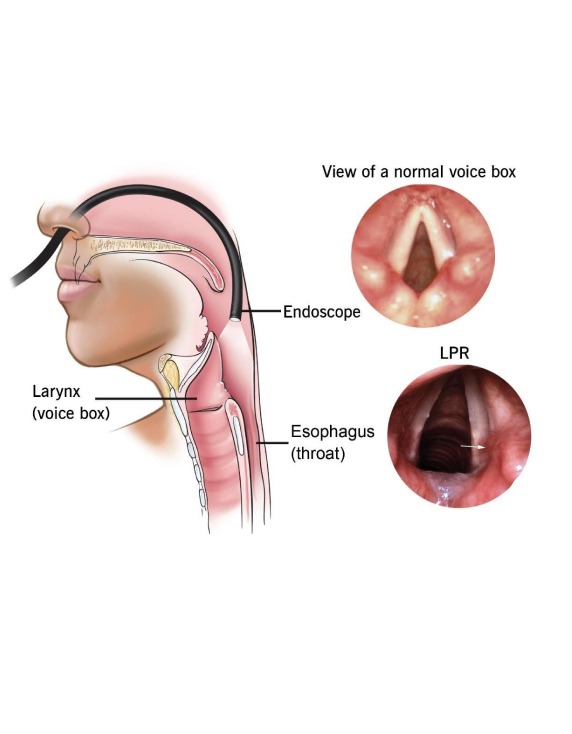Definition
Laryngopharyngeal reflux (LPR), commonly known as acid reflux, is a condition where stomach acid flows back into the throat and larynx (voice box), leading to irritation and discomfort. Unlike gastroesophageal reflux disease (GERD), LPR primarily affects the upper airway and can cause a range of symptoms.

Causes of Acid Reflux (Laryngopharyngeal Reflux)
LPR is often acid reflux caused by a malfunctioning lower esophageal sphincter (LES), which allows stomach acid to flow back into the throat. Contributing factors include:
Dietary Choices: Consuming acidic or spicy foods, caffeine, and alcohol can exacerbate symptoms.
Obesity: Excess weight can increase abdominal pressure, leading to acid reflux.
Hiatal Hernia: A hiatal hernia can weaken the LES, making reflux more likely.
Smoking: Smoking weakens the LES and irritates the throat lining.
Pregnancy: Hormonal changes and increased abdominal pressure during pregnancy can trigger LPR.
Certain Medications: Some medications, such as calcium channel blockers or antihistamines, can relax the LES.
Stress: Chronic stress can worsen symptoms.
Symptoms of Acid Reflux (Laryngopharyngeal Reflux)
LPR can manifest with various acid reflux symptoms, including:
Chronic Cough: A persistent dry cough that worsens when lying down or after eating.
Sore Throat: Frequent sore throat, hoarseness, or the sensation of a lump in the throat.
Difficulty Swallowing: Dysphagia or the sensation of food getting stuck in the throat.
Voice Changes: Changes in the voice, such as hoarseness or loss of voice.
Postnasal Drip: Excessive mucus in the throat.
Throat Clearing: Frequent throat clearing or the need to cough to clear the throat.

Treatment of Acid Reflux (Laryngopharyngeal Reflux)
Managing LPR involves addressing the underlying cause and relieving symptoms:
Lifestyle Modifications: Dietary changes, such as avoiding trigger foods, and weight management can help.
Elevating the Head: Sleeping with the head elevated can prevent acid from flowing into the throat.
Medications: Proton pump inhibitors (PPIs) and H2 blockers can reduce stomach acid production.
Throat Hydration: Staying well-hydrated can alleviate throat irritation.
Avoiding Smoking and Alcohol: Quitting smoking and reducing alcohol consumption can be beneficial.
Stress Reduction: Stress management techniques like yoga or meditation can help.
Surgery: In severe cases, surgical procedures may be considered.
Management and Prevention
To manage and prevent acid reflux:
Dietary Awareness: Identify and avoid trigger foods and acidic beverages.
Portion Control: Smaller, more frequent meals can reduce pressure on the LES.
Chewing Gum: Chewing gum can stimulate saliva production, which helps neutralize acid.
Avoid Tight Clothing: Loose-fitting clothing reduces abdominal pressure.
Regular Check-Ups: Consult a healthcare provider or specialist for proper diagnosis and ongoing management.
Summary
Laryngopharyngeal reflux (LPR), or acid reflux, is a condition where stomach acid flows into the throat and larynx, causing symptoms like chronic cough, sore throat, and voice changes. It can be triggered by various factors, including diet, obesity, and smoking. Treatment options range from lifestyle modifications to medications and surgery, depending on the severity of symptoms. Managing and preventing LPR involves dietary awareness, stress reduction, and regular check-ups.


